Path4Med: first workshop within the international project
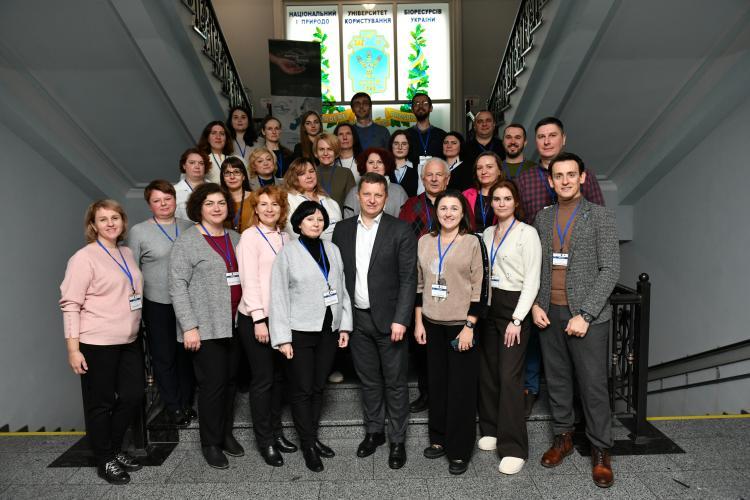
As part of the EU Horizon Path4Med international scientific project «Demonstration of innovative ways to solve the problem of water and soil pollution in the Mediterranean agro-hydrosystem», the first workshop was held on 21 November 2025 at National University of Life and Environmental Sciences of Ukraine (NUBiP).
Path4Med is an innovative project dedicated to combating water and soil pollution in the Mediterranean. Its goals are focused on developing sustainable agriculture while preserving the health of Mediterranean soils and waters. The project is being implemented as part of the D.G.3 (Ukraine) demonstration site «Future paths to zero pollution in the Dnipro basin in the face of new challenges and threats» coordinated by NUBiP of Ukraine. The main objectives of the project are to monitor natural water bodies and assess land resources; create eutrophication maps using remote sensing and GIS tools; develop scenarios to determine future ways to improve soil quality and reduce water shortages in the Dnipro River basin in the context of climate change and post-war recovery.
The event brought together representatives of Ukrainian authorities (State Agency of Water Resources of Ukraine, Pripyat River Basin Water Resources Administration, Interregional Office for the Protection of Dnipro Reservoirs, Boris Sreznevsky Central Geophysical Observatory of the State Emergency Service of Ukraine), scientists and educators (Institute of Agroecology and Nature Management of the National Academy of Agrarian Sciences of Ukraine, Zhytomyr Polytechnic Institute, Lviv National University of Veterinary Medicine and Biotechnologies named after S.Z. Gzhytsky, NUBiP of Ukraine), experts (All-Ukrainian Public Organisation «Association of Agroecologists of Ukraine»), practitioners (Kolos Peasant Farm, ASTRA Peasant Farm, ART-AGRO Trading Company) in the field of water and land resource management (Figs. 1-2).

Fig. 1. Organisation of workshop participants' presentations.

Fig. 2. Structure of workshop participants by job title.
The workshop aimed to identify challenges that deteriorate soil quality and land productivity and reduce the biological and ecological status of surface waters within the Dnipro River Basin. The tasks included: (1) identifying stakeholders who have influence and relevant expertise in water and land resource management in the Dnipro Basin (Session 1); (2) identifying environmental problems/challenges that contribute most significantly to the deterioration of soil and surface water quality in the Dnipro River Basin (Session 2); determining the causes and consequences of the priority challenges identified (Session 2); (3) creation of cause-and-effect diagrams of identified priority challenges with the involvement of stakeholders who have a significant contribution to solving challenges/problems (Session 3).
The event was opened by Oleksandr LABENKO, Vice-Rector for Scientific and Pedagogical Work and International Affairs, and Yulia KOLOMIETS, Dean of the Faculty of Plant Protection, Biotechnology and Ecology. The moderators were Maksym KLYMENKO, Head of the International Relations Office, and Vita STROKAL, Project Coordinator on the Ukrainian side.
The workshop participants were divided into two subgroups, each of which received a set of forms to work with. During Session 1, participants discussed and identified stakeholder groups that they believe contribute to the development and implementation of solutions and pathways. They also identified the target audience of scientists and practitioners who are experts in water and land resource management in the Dnipro River basin.
During Session 2, participants used the information content they had received about the main water, environmental and land issues in the Dnipro basin to identify three challenges (problems) for surface water and land resources during a group discussion. From the three identified problems, each group selected one priority for surface water bodies and land resources. In a friendly and active group work atmosphere, cause-and-effect diagrams were created to address the identified environmental problems.
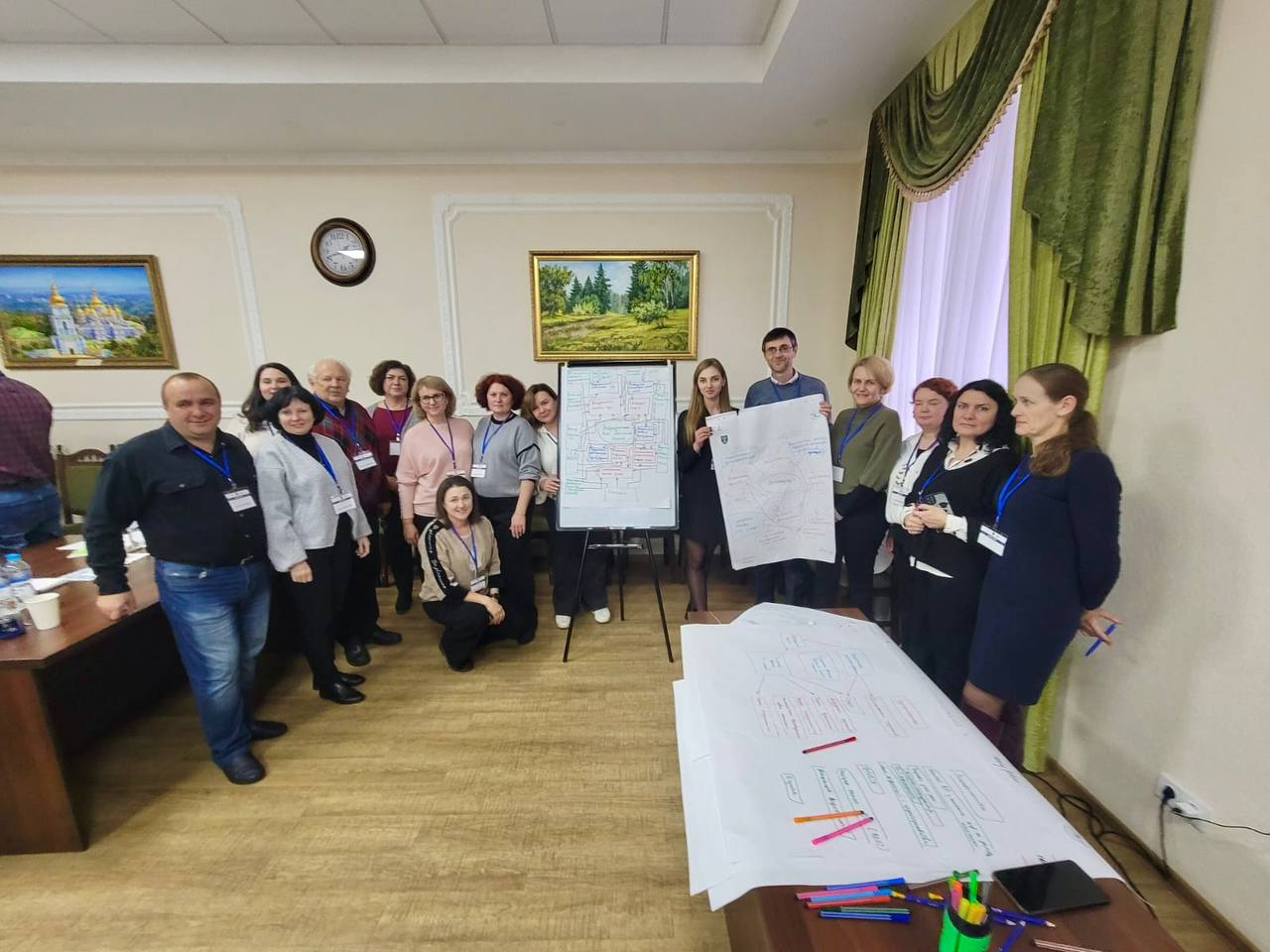
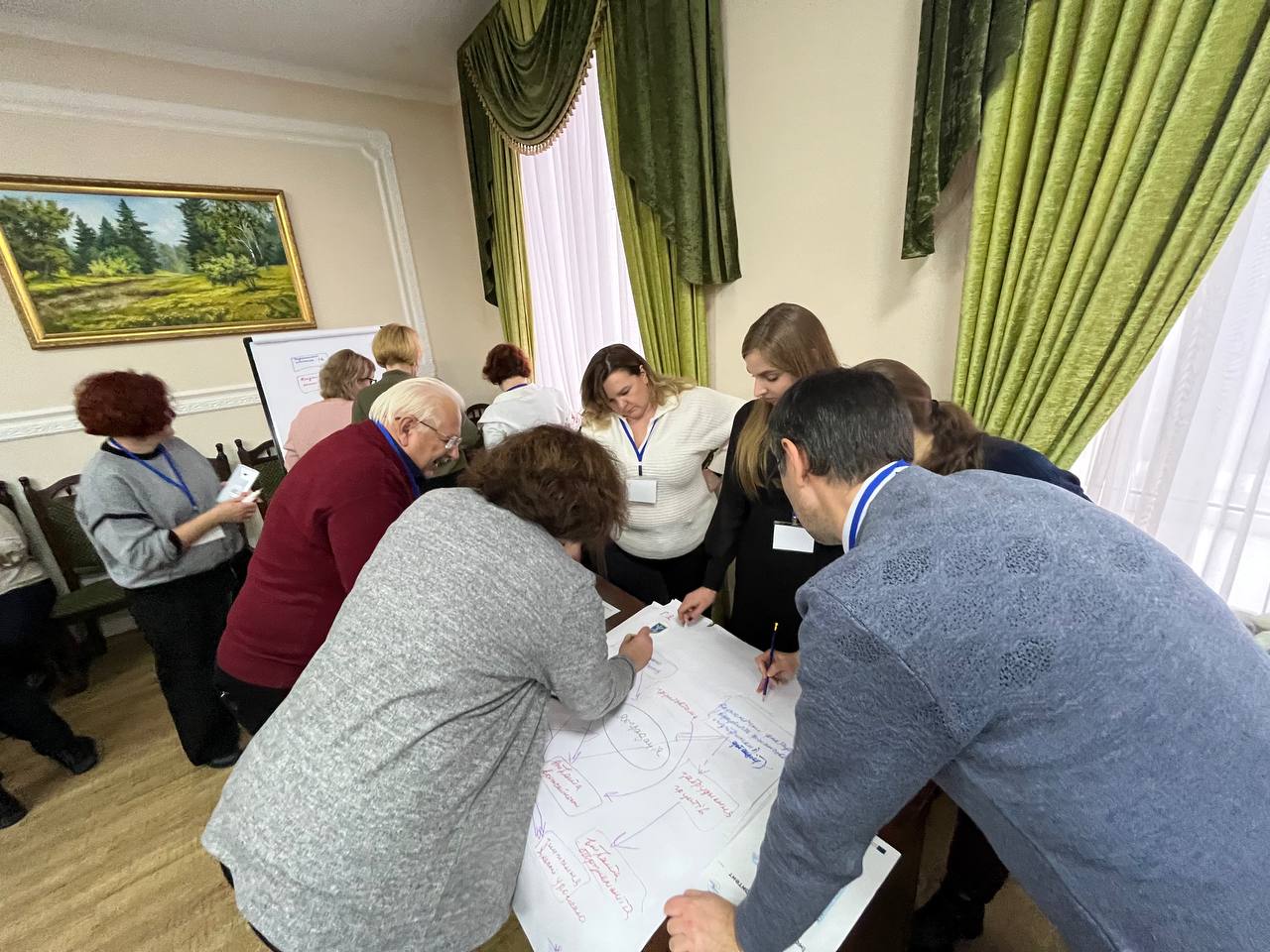
In the final Session 3, participants discussed the contribution of stakeholders to solving the problems they had identified for surface water and land resources. During the lively discussion, targeted questions were asked, such as “How can a stakeholder influence?” and “Can a stakeholder's influence be direct or indirect?” Ultimately, each group created two diagrams showing the relationships between causes, effects and stakeholder contributions to solving problems for surface water bodies and land resources.
It is worth noting that during the group work, the participants showed motivation to complete the tasks, a creative approach to constructing cause-and-effect diagrams of stakeholder involvement in solving environmental issues, intellectual abilities in revealing environmental problems of surface water bodies and land resources in the Dnipro basin, and their own expertise and experience in the issues under discussion.
At the end of the event, participants evaluated the organisation, content and interactivity of the workshop (Fig. 3). The vast majority of participants (86-100%) rated the event 9-10 points (out of a possible 10) and noted in the questionnaire that the positive aspects of the event were that the workshop was conducted according to European standards, participants had the opportunity to meet experts and exchange scientific knowledge.

Fig. 3. Workshop evaluation by participants
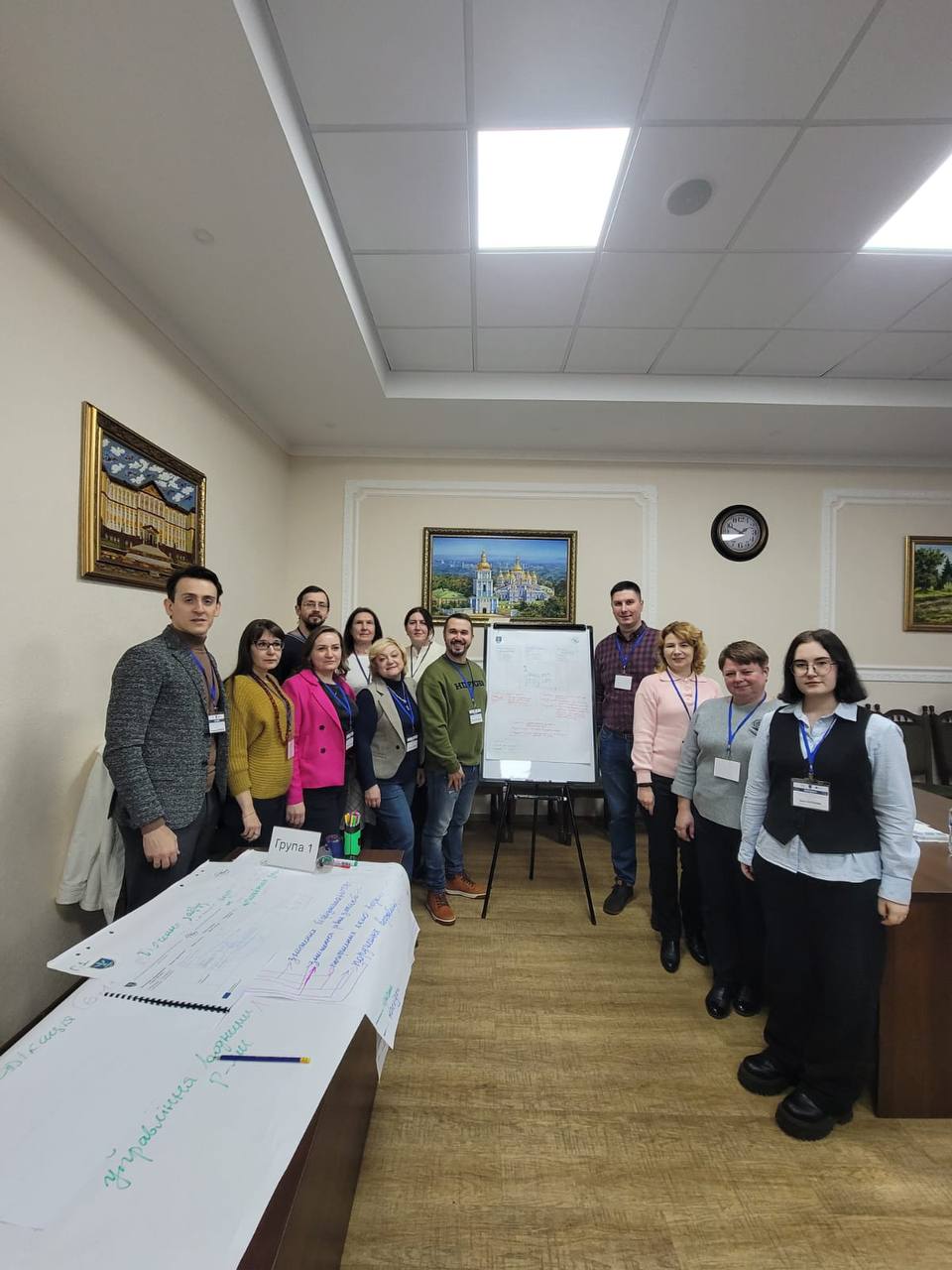
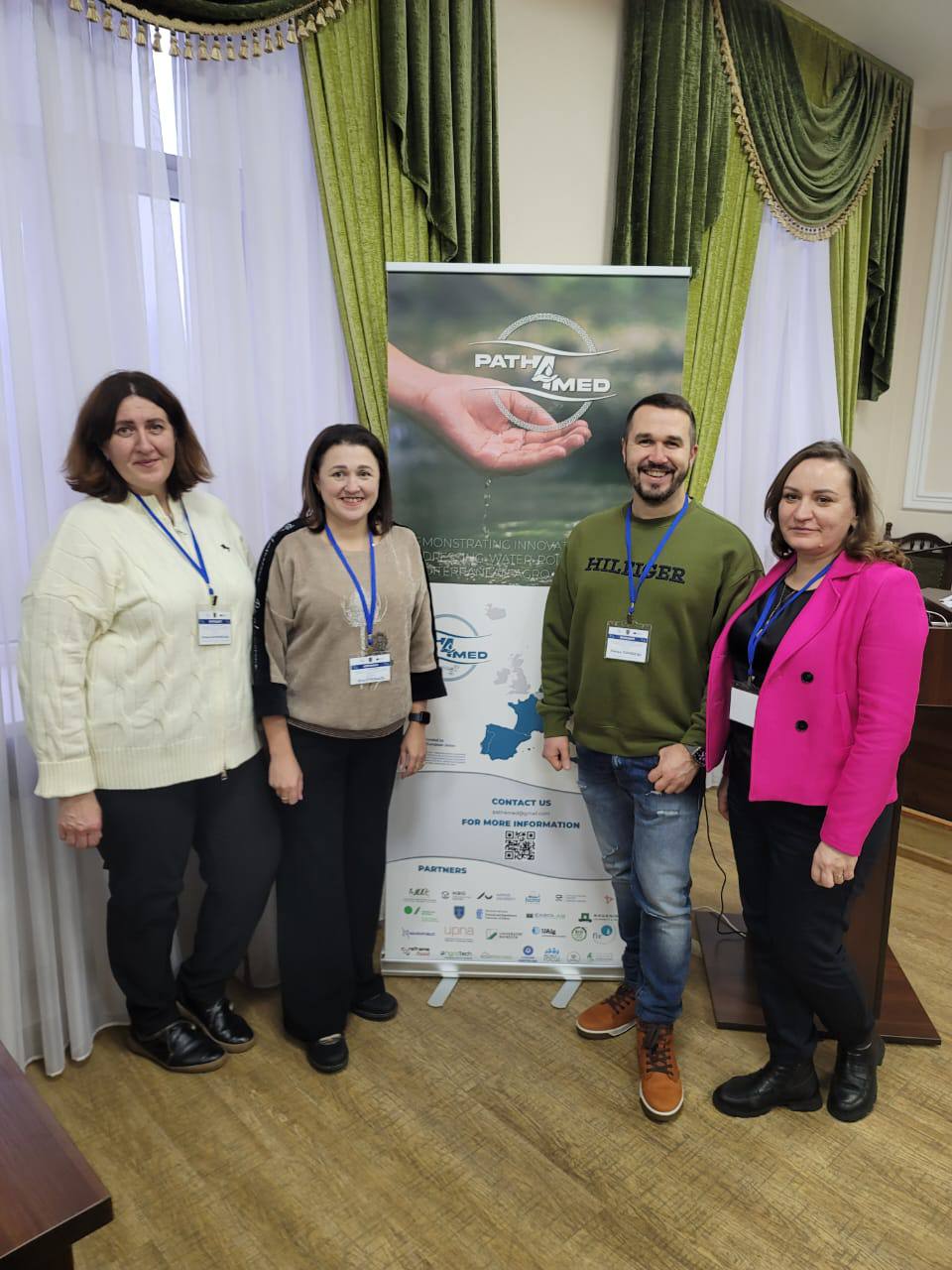
We would like to thank all workshop participants for their active participation, constructive discussion and valuable professional contribution to identifying ways to address the environmental challenges of the Dnipro River Basin. We would like to express our special gratitude to representatives of government agencies, scientific institutions, educational institutions, public organisations and agricultural enterprises who shared their expertise and experience. We are grateful to the Ukrainian project coordinator Vita STROKAL for her professional organisation and moderation of the workshop. We look forward to further fruitful cooperation within the Path4Med project to preserve and restore the quality of Ukraine's water and land resources.